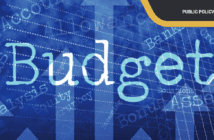By CPA Nyakoi Oreko Godfrey
The Potential for Carbon Credit Projects to Generate Negative Environmental and Social Impacts in Developing Countries Must be Addressed
The concept of carbon credits in developing countries has generated a range of controversies that need to be addressed to ensure the effectiveness and equity of these market-based mechanisms. One of the key controversies is the concern over the additionality of emission reductions achieved through carbon credit projects. Additionality refers to whether a project generates emission reductions that would not have occurred in the absence of the carbon credit incentive. In developing countries, there is a risk that some projects may claim carbon credits for reductions that would have happened anyway, raising questions about the integrity and credibility of the carbon market.
Another controversy in the concept of carbon credits in developing countries is the issue of leakage, where emission reductions achieved in one location result in emissions being shifted to another location. This can occur if carbon credit projects lead to the outsourcing of emissions-intensive activities to other regions with weaker environmental regulations, undermining the overall effectiveness of carbon credit schemes. Addressing leakage requires careful monitoring and oversight to ensure that emission reductions are real and verifiable, and that projects do not simply transfer pollution from one area to another.
Additionally, the distribution of benefits from carbon credit projects in developing countries has been a source of controversy. There are concerns that the benefits of carbon credits are not reaching the most vulnerable populations and marginalized communities, leading to social inequities and injustices. It is crucial to ensure that local communities are involved in the design and implementation of carbon credit projects, and that they receive a fair share of the revenues generated from trading carbon credits. Failure to address these issues can undermine the legitimacy and sustainability of carbon credit schemes in developing countries.
The role of offsetting in carbon credit projects has also been a source of controversy in developing countries. Offsetting allows emitters to compensate for their emissions by purchasing carbon credits from projects that reduce emissions elsewhere. While offsetting can provide a cost-effective way to achieve emission reductions, there are concerns that it may allow emitters to continue polluting without making meaningful efforts to reduce their own emissions. This raises questions about the additionality and integrity of offset projects, and whether they truly contribute to climate change mitigation in a meaningful way.
Another controversy in the concept of carbon credits in developing countries is the potential for greenwashing or the misrepresentation of carbon credit projects as more environmentally friendly than they actually are. Some projects may exaggerate their emission reduction claims or fail to deliver on their promises, leading to skepticism about the credibility of carbon credits as a tool for climate change mitigation. It is important to ensure transparency, accountability, and independent verification of carbon credit projects to build trust in the carbon market and prevent greenwashing practices.
The issue of double counting is another controversy in the concept of carbon credits in developing countries. Double counting occurs when the same emission reductions are claimed by multiple parties, leading to an overestimation of emission reductions and undermining the integrity of the carbon market. Developing countries must establish clear rules and protocols to prevent double counting and ensure that emission reductions are accurately measured, reported, and verified to avoid any discrepancies in the accounting of carbon credits.
Furthermore, the reliance on carbon credits as a sole mechanism for climate change mitigation in developing countries has been a subject of controversy. While carbon credits can provide a valuable incentive for emission reductions and sustainable practices, they should not be seen as a substitute for broader policy measures to address the root causes of climate change. Developing countries must adopt comprehensive strategies that integrate carbon credit schemes with regulatory frameworks, investment incentives, and technology transfer initiatives to achieve long-term sustainability and resilience to climate change impacts.
The issue of carbon pricing and the effectiveness of carbon credits as a tool for incentivizing emission reductions has also been a topic of controversy in developing countries. Carbon pricing mechanisms, such as cap-and-trade systems or carbon taxes, can provide a more direct and predictable signal to emitters to reduce their carbon footprint, compared to the voluntary nature of carbon credit schemes. It is important to assess the relative effectiveness of different carbon pricing mechanisms in achieving emission reductions and promoting sustainable development in developing countries.
Moreover, the governance and oversight of carbon credit projects in developing countries has been a source of controversy, with concerns about transparency, accountability, and the independence of project verification mechanisms. Developing countries must establish robust regulatory frameworks and oversight mechanisms to ensure the integrity and credibility of carbon credits, and to prevent fraud, corruption, and mismanagement in the carbon market. Strengthening institutional capacity and building local expertise in monitoring and verification are essential to address these governance challenges.
The potential for carbon credits to perpetuate or exacerbate environmental injustices and inequalities in developing countries is a significant controversy that needs to be addressed. There are concerns that carbon credit projects may displace communities, undermine indigenous rights, or lead to land grabs and conflicts over natural resources. It is crucial to conduct social and environmental impact assessments, engage with affected communities, and ensure their participation and consent in carbon credit projects to prevent unintended negative consequences and promote social equity and environmental justice.
Additionally, the lack of access to finance, technology, and capacity-building support for developing countries to participate in carbon credit projects has been a source of controversy. Many developing countries face barriers to entry in the carbon market, including high transaction costs, limited access to financing, and a lack of technical expertise to undertake emission reduction projects. International cooperation and partnerships are essential to address these challenges and support the participation of developing countries in carbon credit schemes, while also promoting technology transfer and knowledge sharing to build local capacity for sustainable development.
The impact of market volatility and carbon price fluctuations on the financial viability of carbon credit projects in developing countries is another controversy that needs attention. Carbon markets can be volatile, with prices fluctuating due to changes in supply and demand, regulatory uncertainty, and geopolitical factors. Developing countries must assess the risks and opportunities associated with participating in carbon credit schemes and develop strategies to manage price volatility and ensure the long-term sustainability of their projects. Diversifying revenue streams, accessing risk management tools, and leveraging financial instruments can help mitigate the financial risks of carbon credit projects.
The potential for carbon credits to crowd out other climate finance mechanisms and detract from broader sustainable development goals in developing countries is a significant controversy that needs to be addressed. While carbon credits can provide a valuable source of revenue for climate-friendly projects, they should not overshadow the need for other forms of climate finance, such as grants, concessional loans, and public investments in adaptation and resilience initiatives. Developing countries must prioritize a holistic approach to climate finance that aligns with their national development priorities and promotes synergies between different funding sources to achieve sustainable development outcomes.
Moreover, the potential for carbon credit projects to generate negative environmental and social impacts in developing countries is a critical controversy that must be addressed. Some projects may involve unsustainable practices, land degradation, deforestation, or water contamination, leading to adverse consequences for ecosystems and communities. Developing countries must conduct thorough impact assessments, adopt safeguards and standards for project implementation, and engage with local stakeholders to prevent harmful impacts and ensure the sustainability of carbon credit projects.
The issue of carbon credit project permanence and the long-term sustainability of emission reductions achieved through these projects is another controversy that needs attention in developing countries. Carbon credits are often issued for emission reductions that are expected to endure over a specified period, typically decades. However, there are risks that these emission reductions may not be permanent, due to factors such as reversals in forest carbon stocks, changes in land use practices, or technological obsolescence. Developing countries must implement measures to assess and address the risks to project permanence and ensure the durability of emission reductions over time.
Furthermore, the potential for carbon credits to undermine national climate ambition and delay the transition to a low-carbon economy in developing countries is a significant controversy that needs to be addressed. While carbon credits can provide a valuable incentive for emission reductions, there is a risk that they may allow countries to rely on offsetting rather than implementing more ambitious emission reduction targets and policies domestically. Developing countries must strike a balance between using carbon credits as a tool for climate change mitigation and advancing their own domestic efforts to reduce emissions and promote sustainable development.
In conclusion, the concept of carbon credits in developing countries has sparked a range of controversies that need to be carefully considered and addressed to ensure the effectiveness and equity of these market-based mechanisms. From concerns over additionality and leakage to issues of benefit distribution, governance, and impact assessment, the controversies surrounding carbon credits highlight the complex challenges and trade-offs involved in leveraging carbon markets for climate change mitigation and sustainable development. Developing countries must prioritize transparency, accountability, and stakeholder engagement in carbon credit projects, while also considering broader policy measures, financing mechanisms, and technology transfer initiatives to support their transition to a low-carbon, sustainable future.
The writer is a member of ICPAK
Email: [email protected]




